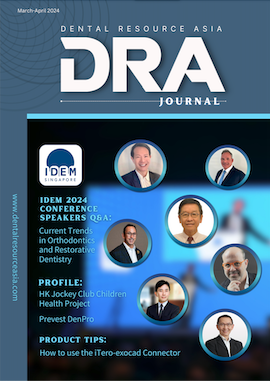AUSTRALIA: In a recent Senate committee inquiry, concerns have emerged regarding the significant barriers to affordable dental care in Australia, particularly for vulnerable populations such as women escaping domestic violence. The nation faces one of the highest rates of tooth loss when compared to other developed countries.
This alarming issue has left many individuals, particularly domestic violence survivors, struggling with missing teeth for extended periods, with some enduring this predicament for more than three years.
Prolonged Wait Times for Dentures
During the inquiry, Dr. Shalinie King, a senior lecturer at the University of Sydney dental school, highlighted a distressing reality for patients relying on public dental care systems. Some patients must endure years between the loss of their teeth and the provision of a full set of dentures.
 Click to Visit website of India's Leading Manufacturer of World Class Dental Materials, Exported to 90+ Countries.
Click to Visit website of India's Leading Manufacturer of World Class Dental Materials, Exported to 90+ Countries.
These delays have profound consequences for individuals, especially domestic violence survivors who are already grappling with numerous challenges. Dr. King emphasized the dire circumstances, stating, “These are fairly young women who would have had no teeth for three, four, maybe five years, and they’re waiting on dentures.”
Multiple Barriers for Vulnerable Populations
One contributing factor to these prolonged wait times is the transient nature of many domestic violence survivors. Frequent relocations due to unstable accommodation lead to the need to re-register with local health districts to access public dental care. This constant upheaval pushes these individuals to the bottom of waiting lists, exacerbating their dental health struggles. Moreover, dental health is often not a priority for domestic violence survivors, who have to contend with a multitude of pressing issues, including safety and well-being.
The consequences of tooth loss extend beyond the physical realm, impacting various aspects of individuals’ lives. For instance, employment opportunities can be scarce when one has only a few remaining teeth, making job interviews and everyday tasks, like picking up children from school, challenging. Patients facing tooth loss may feel stigmatized when engaging in social activities and often resort to a liquid diet of smoothies and pulverized foods, which can have severe implications for their overall health.
Long-Term Solutions Needed
While the provision of dentures and tooth extraction helps improve the lives of those affected, it is not a sustainable solution to the broader issue of dental care in the nation. Dr. King emphasised the importance of helping people retain their teeth, stating, “We want people to age with teeth.” Dental care needs to extend beyond just addressing existing problems and move toward a preventive approach.
Lack of Coverage for Young Adults
Another issue brought to light during the inquiry is the lack of dental coverage for young adults once they turn 18. This demographic often falls through the cracks, as they are neither covered by the public system nor can they afford private dental care. Western NSW local health district clinical director, Dr. Heather Cameron, emphasized that the investment made in children’s dental health is often lost in this age group, leading to lifelong consequences. Dr. Cameron stressed the need for a safety net to provide continuity of care and prevent the deterioration of dental health among this population.
The Senate committee inquiry has shed light on the pressing issue of dental care in Australia, particularly for domestic violence survivors and young adults. Addressing these challenges requires not only a focus on improving access to dental services but also a shift towards preventive care to ensure that Australians can age with their teeth and maintain their overall well-being.
The information and viewpoints presented in the above news piece or article do not necessarily reflect the official stance or policy of Dental Resource Asia or the DRA Journal. While we strive to ensure the accuracy of our content, Dental Resource Asia (DRA) or DRA Journal cannot guarantee the constant correctness, comprehensiveness, or timeliness of all the information contained within this website or journal.
Please be aware that all product details, product specifications, and data on this website or journal may be modified without prior notice in order to enhance reliability, functionality, design, or for other reasons.
The content contributed by our bloggers or authors represents their personal opinions and is not intended to defame or discredit any religion, ethnic group, club, organisation, company, individual, or any entity or individual.


